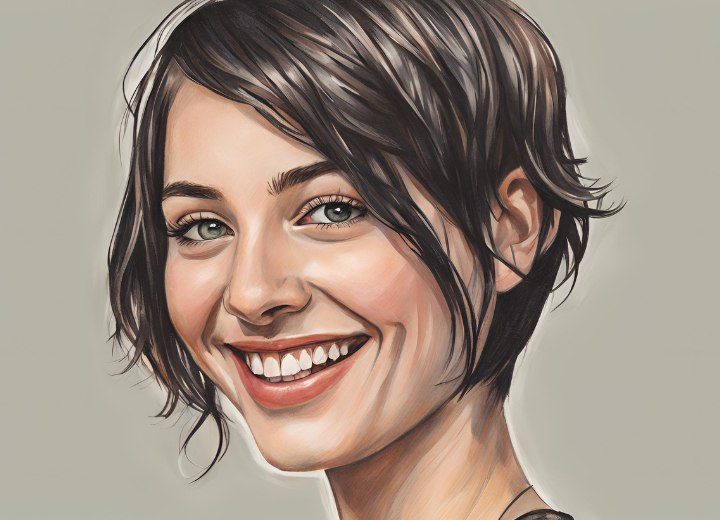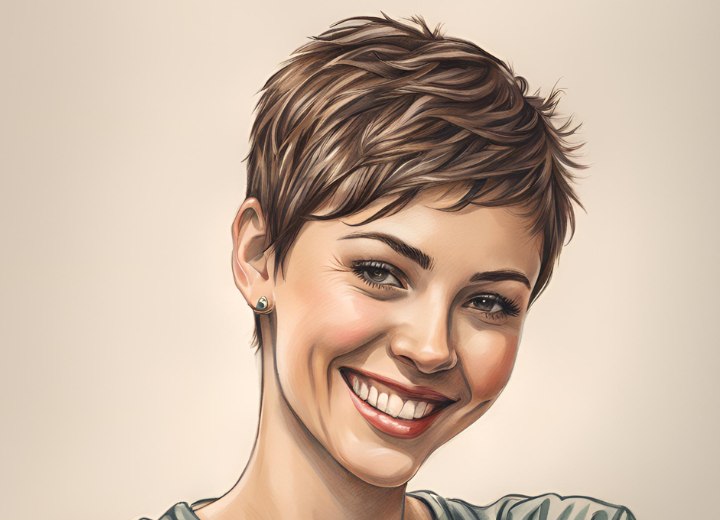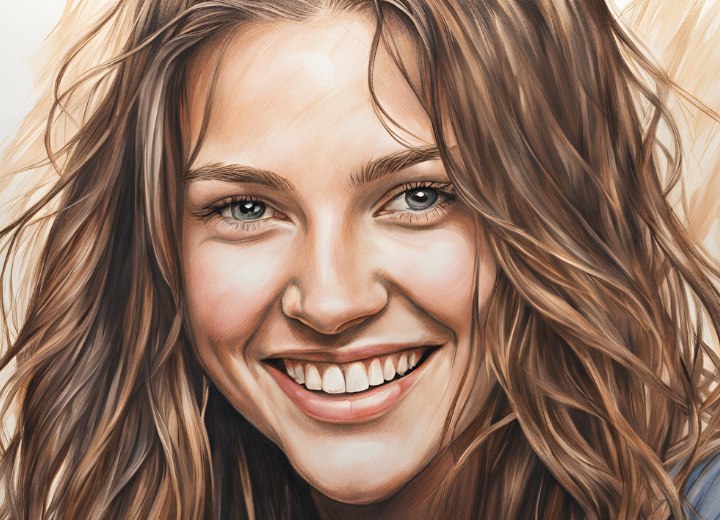Hair and Sweat

A: Sweat plays an important role in regulating your body temperature and detoxifying your body, but it can also have significant effects on your hair. How sweat impacts your hair varies from person to person and depends on factors like hair type, texture, porosity, and length.
When sweat mixes with oils and dirt on your scalp, it can cause various issues. This is especially true for women who exercise regularly or live in hot, humid climates. The impact of sweat also depends on hair length, so I'll discuss its effects on both short and long hair below.
The Impact of Sweat on Short Hair
Women with short hair usually experience less moisture buildup from sweat, which is beneficial because short hair dries faster. As a result, sweat doesn’t cling to the hair as easily and is less likely to cause problems like scalp irritation. However, sweat can still cause discomfort with short hair since it exposes the scalp more, allowing sweat to come into direct contact with the skin. This can lead to a sticky feeling and sometimes clogged pores, making the scalp feel greasier.
For women with fine short hair, sweat often causes the hair to stick to the scalp or tangle. Women with short curly hair sometimes notice that sweat makes their hair frizzy and puffy. Additionally, sweat can break down styling products like gels, making the hair look less polished. After sweating, it’s often necessary to restyle the hair to regain its shape.
Many women with short hair feel the need to wash their hair more often to remove sweat and dirt and prevent irritation. While this can help keep the scalp clean, frequent washing can also strip the hair of its natural oils, which can eventually lead to dryness and breakage. For colored hair, frequent washing can also cause faster fading of the hair color.

Long hair, with its larger surface area, tends to hold onto more sweat, making it feel heavy and damp. Women with thick, long hair often find that their hair absorbs extra sweat and stays moist longer. This can lead to tangled or matted hair, especially in curly hair.
Sweat can also cause frizz, particularly when it evaporates and leaves behind salt and minerals on the hair. These substances can disrupt the hair cuticles, promoting frizz. The longer the hair, the more prone it is to frizz, especially in humid environments. Women with long hair often find that their hair becomes tangled and difficult to manage after sweating. In straight, long hair, sweat frequently makes the roots greasy and flat, while the ends become dry.
Sweat can also build up on the scalp, leading to itching, fungal infections, and clogged hair follicles, which can cause inflammation. Prolonged exposure to sweat can weaken the hair shaft, making the hair more prone to breakage. This is especially a concern for women who use heat tools or chemically treat their hair, as their hair is already weakened and more susceptible to damage.

Your hair’s porosity—how well your hair absorbs and retains moisture—also plays a key role in how sweat affects your hair.
Low-porosity hair repels moisture, which has both advantages and disadvantages. On one hand, sweat is absorbed less quickly, so it has less of an effect on the hair. On the other hand, sweat that does get absorbed can be harder to remove, and styling products may not penetrate as easily.
High-porosity hair, on the other hand, absorbs moisture easily, so sweat can cause the hair to swell, frizz, and lose its shape. Women with high-porosity hair often find that sweat makes their hair dry and brittle because it disrupts the cuticle layer.
In short, while sweating is a natural process, it can affect the health and appearance of your hair depending on your hair type, porosity, and the level of sweat exposure. Finding a balance between regular cleaning and maintaining the natural oils in your hair is key to minimizing these effects.
©Hairfinder.com